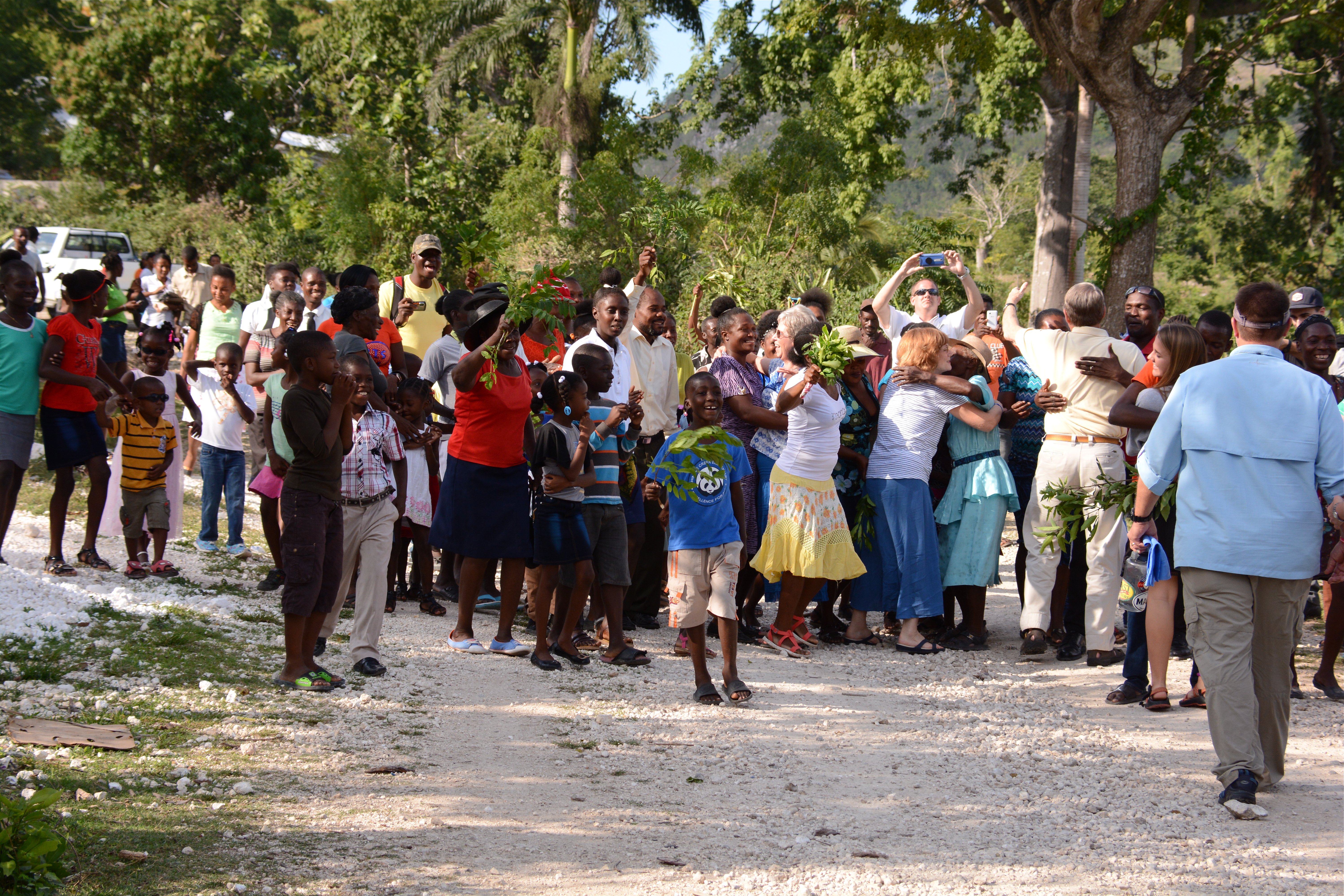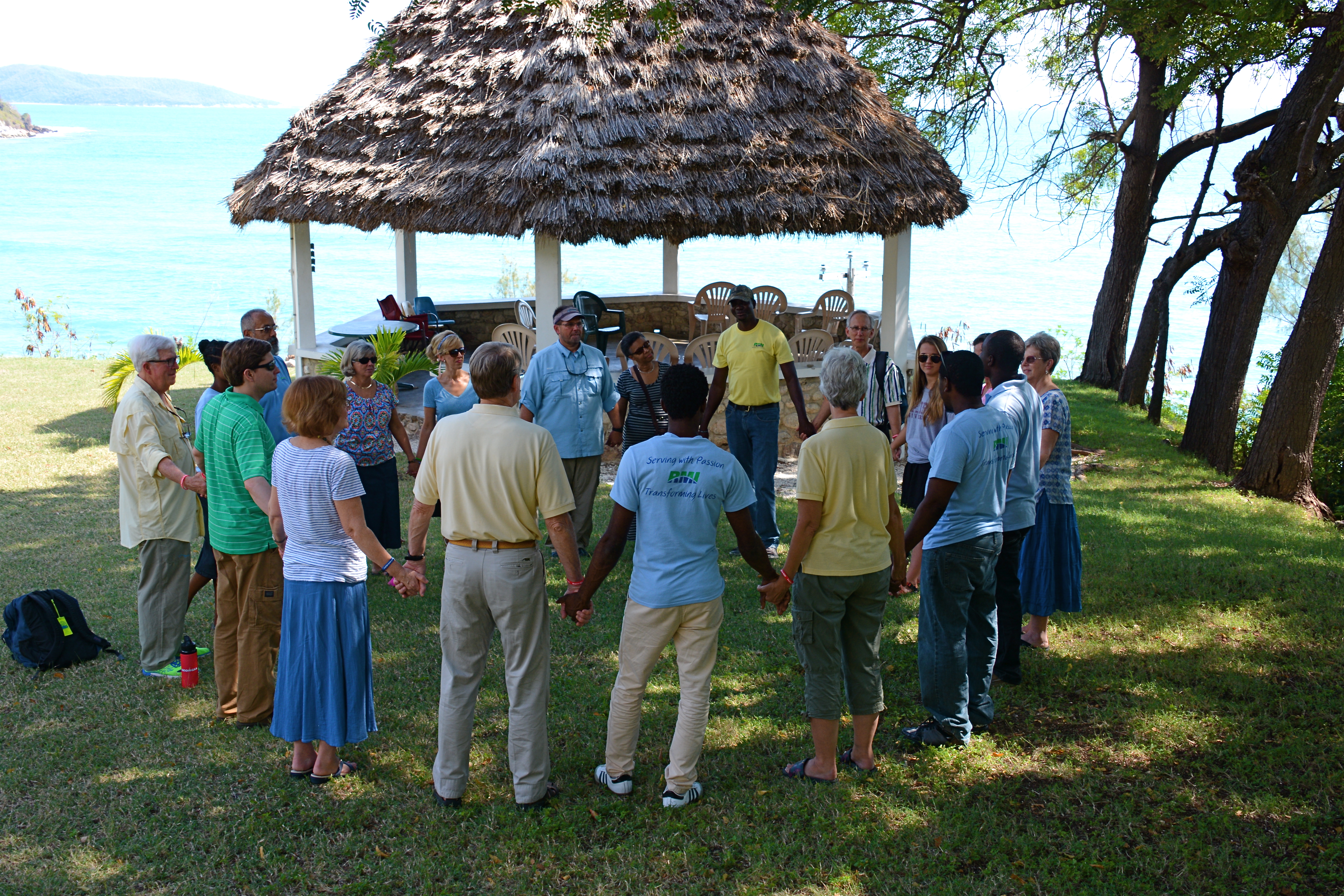Last week, my dad told me that he and Mom had been asked to speak to a group at their church who are going to Haiti for a week this winter. They were supposed to talk about “Haitian Culture,” and they were each given ten minutes to speak.
Of course, twenty minutes is not enough time to even start delving into the rich and unique culture of Haiti. But what ended up being a bigger issue for my parents was that they disagreed on what to say.
My dad, an American, developed his perspective through living in Haiti for nearly a decade. He wanted to make sure the members of the mission group didn’t arrive in rural Haiti under the impression that all the people there, despite living in poverty, were relentlessly happy.
He illustrates his point like this: “If you’re starving and you know that I’m carrying in my bag enough money to feed your family for a year, you’re going to be very nice to me, aren’t you?”

A warm welcome for my church’s Haiti Team. Jubilant scenes like this are nice, but they shouldn’t come as a surprise. Photo: Jim Poag
That’s not to say that impoverished Haitians are cynical or dishonest. But Americans should keep in mind that to Haitians in poverty, their presence always signifies money and opportunity. My dad was very frustrated with the stereotype that poor Haitians are just happy all the time because he knows that there are so many background factors that play into their behavior.
My mom, who is Haitian, disagreed. Not with what he said, but with whether it was a good idea to share it with the group. She’s very protective of her country’s image and is reluctant to say anything that might make Americans uneasy.
She wanted to emphasize that even though the group members come from a very different background than the Haitians to whom they’re going to minister, that they also have much in common and can learn from one another. Her focus was on mutual respect and understanding.
I think both of their points are important. On one hand, it doesn’t do anyone any good to deny unfortunate realities. When interacting with anyone who’s had fewer advantages than you have, you can’t pretend they won’t be thinking about that, whatever attitude they choose to display.
But on the other hand, you can’t let your differences paralyze you. Just be humble, and be willing to listen. After all, you’re dealing with individuals, not “Haitian Culture” as a monolith.

Interacting with people is the best way to learn about Haiti and its culture. Photo: Jim Poag
And of course, being able to listen and communicate effectively depends on your Creole ability. So more than anything, I hope my parents will encourage their church group to learn some Creole before they go to Haiti. It is the most important part of Haitian culture, after all!
Equip yourself to get to know individuals with questions like these:
Ki kote w te fèt? = Where were you born?
Eske w gen frè ou sè? = Do you have brothers or sisters?
Ki kalite mizik ou renmen? = What kind of music do you like?
Eske w renmen foutbòl? = Do you like soccer?
Ki manje w renmen fè? = What food do you like to cook?
Written by Megan Pearson on November 22, 2017

